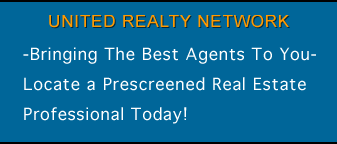Types of home ownership
Several types of homeownership
are available to you. Find out which one meets your needs.
Fee
simple: The majority of single-family detached homes are fee simple. You
own all of the property outright: the house, the land it's built on, and the yard
(if there is one). You're responsible for insurance and all the maintenance, decorating,
landscaping and repairs. You also control all remodeling, though you're subject
to local zoning requirements and any restricting covenants that might affect the
property.
Condominium: You own your unit (townhouse, apartment,
detached house) and have certain rights to the common areas (parking, walkways,
swimming pool, recreation area). You control how the inside of your unit is decorated,
and the condominium association controls the outside area. The association levies
a monthly fee for upkeep of the outside area.
Planned unit development:
Your home is one of many homes in a defined community, which may include detached
houses, townhouses, garden apartments or high-rise condominiums. You control your
unit and have community rights to facilities such as parking, swimming pool, playground
and community center. The community association has control over the common areas
and charges a monthly fee for their upkeep.
Co-op: You
own a share in a corporation that owns real estate and you have exclusive rights
to a specific unit. The co-op board often has great power. For instance, it can
prohibit pets and subletting, and it can veto buyers who do not meet its standards.
Like condos and planned unit developments, the co-op association charges a monthly
fee; however, this fee often includes mortgage costs as well as maintenance, reserves
and other expenses.
Note: If you're looking at a condo, planned unit development
or co-op, be sure to ask about the rules, by-laws and regulations used to operate
the property.
Real estate brokers
When you are ready
to look for a home, you may choose a real estate broker to work with you. Brokers
can supply information regarding current homes for sale, past sales, neighborhood
benefits and financing options. Brokers who represent you can also provide assistance
as your advocate in the negotiating process. You can find a real estate broker
by clicking Real Estate Brokers
and FIND A HOME Rules in
many states have changed in recent years, and now brokers often represent buyers,
sellers, and sometimes both buyers and sellers (as a disclosed duel agent). Brokers
can also have other roles, such as facilitating a transaction. When working with
a broker, be sure to understand who the broker represents and what services are
being provided for you.
Buying without a real estate
broker
Some homeowners choose to sell their properties directly and
without the use of a broker. However, if you are interested in such a property,
be certain to have professional assistance from a reality broker or attorney to
ensure that your interests are protected in the buying process.
|





